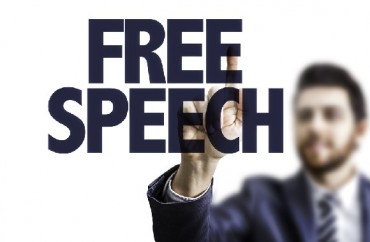
Here we go again.
As if it wasn’t bad enough that the University of California came up with a list of phrases that are supposedly “microaggressions” and, hence, to be avoided; now it will consider recognizing the right to not be offended.
The proposed policy, which will be debated this coming Thursday, says in part:
Intolerance has no place at the University of California. We define intolerance as unwelcome conduct motivated by discrimination against, or hatred toward, other individuals or groups. It may take the form of acts of violence or intimidation, threats, harassment, hate speech, derogatory language reflecting stereotypes or prejudice, or inflammatory or derogatory use of culturally recognized symbols of hate, prejudice, or discrimination.
Everyone in the University community has the right to study, teach, conduct research, and work free from acts and expressions of intolerance. The University will respond promptly and effectively to reports of intolerant behavior and treat them as opportunities to reinforce the University’s Principles Against Intolerance.
It clarifies that the policy “does not apply to the free exchange of ideas in keeping with the principles of academic freedom and free speech.”
But UCLA’s Eugene Volokh has some reservations:
But what does that mean?
“Attacks on individuals or groups,” after all, often are free speech, especially recognizing that “attacks” is used here far beyond physical attacks (or threats of violence and speech that falls within the other narrow First Amendment exceptions). Certainly the third and fourth examples given in the “Addendum” are “free speech” under any existing legal definition of free speech, as is the second. Obviously the authors of the proposal have a much narrower view of “free speech” in mind. Likewise with “the free and open exchange of ideas.” The authors of the proposal love free and open exchange of ideas, until some ideas they dislike about, say, disabilities are expressed.
Indeed. That’s what policies like this are all about, after all — controlling the language.
Like The College Fix on Facebook / Follow us on Twitter
IMAGE: Shutterstock






Please join the conversation about our stories on Facebook, Twitter, Instagram, Reddit, MeWe, Rumble, Gab, Minds and Gettr.